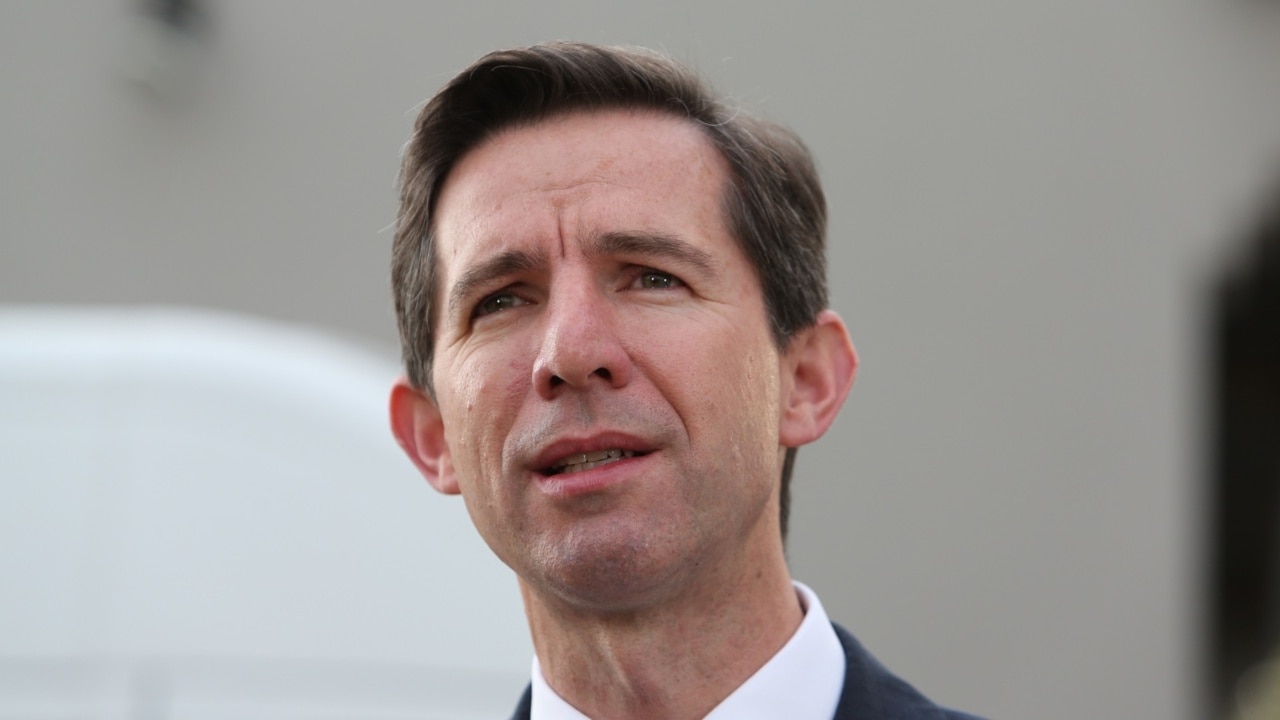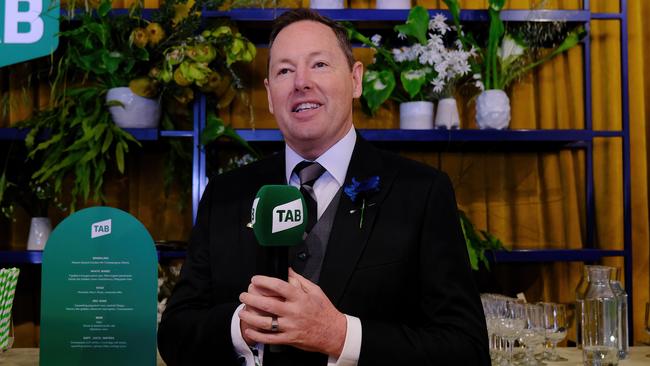Bookies stung by smaller bets and higher taxes as post-Covid reality hits wagering industry
Online wagering giant Sportsbet is the latest bookmaker to report a fall in profits or betting turnover. The glory days could be over for a while for the entire sector.

They might not get much sympathy, but it is getting harder for bookies to make a buck.
Consumers are reining in their spending and punting less, while at the same time governments have increased their taxes – and are set to levy even more imposts on some of the biggest wagering operators.
Add in what is likely a looming crackdown on betting advertising, a federal government inquiry into online gambling and its impact on problem gamblers, and money laundering investigations in the sector by financial watchdog Austrac, and the highs the bookies experienced during the Covid lockdowns seem to be over.
The most recent financial results for Australia’s biggest online betting company Sportsbet, which has a 48 per cent digital market share on a gross wagering revenue basis, are proof of the challenges bookmakers face.
Sportsbet’s revenue in Australia fell six per cent in the six months to December 31, according to results released by London-listed parent company Flutter Entertainment on Friday.
The group’s adjusted operating profit in the full 2022 calendar year, including the usually lucrative Spring Racing Carnival in October and November, fell 12 per cent to £361m ($641m) compared to the previous 12 months.
That decrease was actually 15 per cent in Australian currency terms, while the amount staked by punters for the year, £11.3bn, was down 7 per cent in Australian dollars.
Flutter’s global chief executive Peter Jackson told analysts on Friday there was a “big step-up in competitive intensity” due to new rival Betr (part-owned by News Corporation) launching in the last quarter of the year and “spending a lot of money on very attractive odds”.
As a result, Sportsbet “deliberately leaned really hard into generosity [offers to customers] and spent a lot of money”, which Jackson said cut into Sportsbet’s profit margins.
“We decided to invest some of the margin we had in order to make sure that we were properly positioned to keep our customer base and to fight back against the increased competitive intensity we saw,” Flutter chief operating officer Jonathan Hill said.
That at least helped Sportsbet remain the dominant player in the market though, with the firm’s average monthly players rising 8 per cent to about 1.09m. Flutter management also said Covid lockdowns helped entrench its dominance, with the company growing at 1.4 times the entire sector when punters spent more time at home betting on horse racing and sports that were still operating during the pandemic.
“[We were] the main beneficiary of Covid as the biggest brand in Australia,” Jackson told analysts on Friday.

But as Australia emerges from Covid two factors are hitting most of the corporate, or digital only, bookies like Sportsbet: punters betting less due to being able to leave the house more and inflation hitting discretionary spending, and a steep rise in state-based point of consumption taxes.
Sportsbet said its “average player days” fell 9 per cent in the second half of 2022. In the same period, newly introduced point of consumption tax changes in NSW and Queensland caused a £22m earnings hit. The taxes will cause a full-year hit of £73m ($130m), Sportsbet said.
ASX-listed Bluebet said this week its customer numbers and wagering turnover increased but revealed its annual average customer value – the amount a punter bets with the firm – had fallen 15.3 per cent in the December half compared with the previous period.
Bluebet executive chairman Michael Sullivan said the decline was just about all due to his business deciding to abandon its high revenue but low margin VIP gambling business.
He said that move was made due to increasing point of consumption taxes and the hybrid tax in some jurisdictions that is a tax on gross margin (turnover less winnings) or turnover.
There have been rumblings that there could be further tax increases coming in some states, particularly Victoria, where the state government is grappling with a lack of competition for its exclusive retail licence – a major source of funding for the racing industry.
ASX-listed Tabcorp, which has held the licence for three decades, had indicated it doesn’t want to pay a vast amount to extend the licence. If there is little competition a smaller licence fee may be accompanied by increases in the wider point of consumption tax to maintain racing industry funding.
“They have to be very careful that they don’t kill the golden goose. The prizemoney that exists and why we have a strong racing industry is because of wagering,” Sullivan says
“They have to be careful they don’t kill that wagering industry that employs a lot of people as well. Who is going to worry about taxing a bookie, well not many people. And governments see us as a good source of money. But we have business and we have to survive too.”
Tabcorp CEO Adam Rytenskild says smaller operators will struggle financially given the rising taxes and that scale is needed to stay in decent shape. Sullivan predicts there will be more consolidation in the sector as a result.
Betr, which aggressively offered 100-1 odds for new customers last October and gained up to 300,000 new clients as a result, is currently in discussions with ASX-listed PointsBet to buy its local Australian business in a deal mooted to be worth as much as $250m.
PointsBet this week said turnover in Australia for the six months to December was up 14 per cent, but its gross win margin declined 2.5 per cent and its $105.3m net win figure was down 2 per cent. Pointsbet is also cutting its marketing expenses.
Meanwhile, Tabcorp has been able to point to its digital betting market share holding steady at 25.1 per cent when it announced its interim financial results in late February – though Rytenskild did admit the overall market is “a bit softer”.
“I think it is because of uncertainty about the economic outlook,” Rytenskild told The Australian when asked about the company’s fall in digital betting income for the six months to December.
“Things like rising interest rates tend to have a bit of a lag effect on discretionary spending. We are definitely seeing an increase in caution [from consumers] and their average spend is off a bit. The digital market is a bit softer. The market overall is a bit softer.”
While digital wagering users grew by about 17,000 to 797,000, Tabcorp’s digital betting turnover fell from $5.26bn a year ago to $4.92bn. Digital wagering revenue fell 15 per cent, though overall wagering increased 8.6 per cent for Tabcorp as more people put on cash bets as Covid lockdowns eased.







To join the conversation, please log in. Don't have an account? Register
Join the conversation, you are commenting as Logout